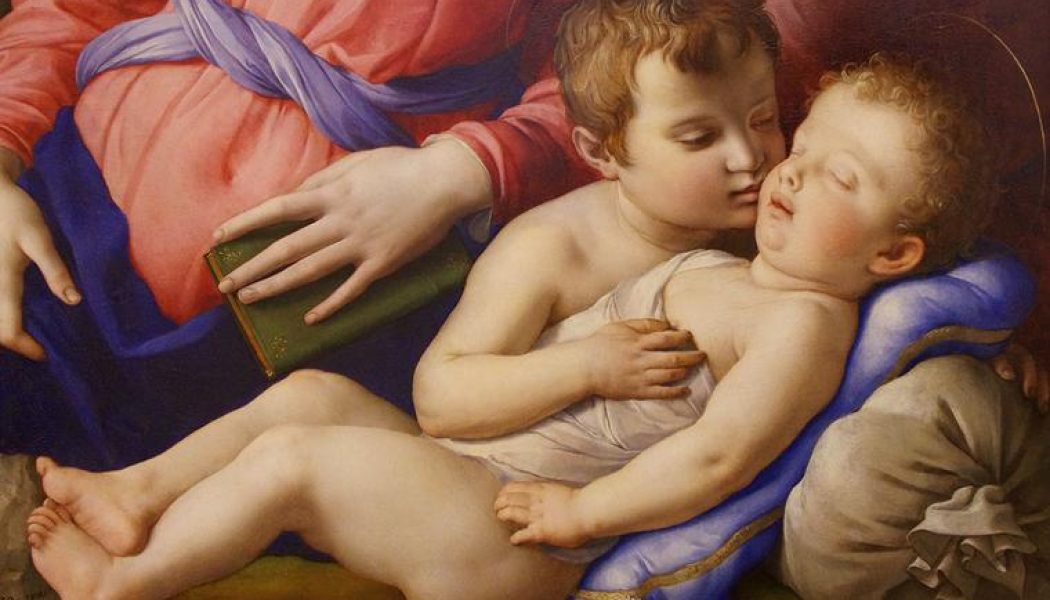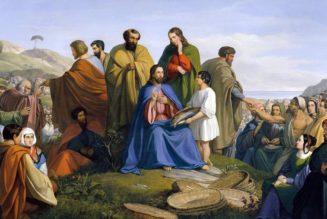
Don’t be afraid. Let these final days of Advent be a kairos, a moment of grace, to seek the peace on earth that angels with divine warrant promise.
Hark! The Herald Angels Sing! is one of my favorite Christmas hymns, precisely because it showcases this notion of Jesus’ coming as the work of reconciliation. Charles Wesley and George Whitefield, the founders of Methodism, were its authors, publishing it in 1739.
Sin as the problem that makes Christmas necessary is right up front. What do the “herald angels sing?” They glorify the Newborn King. They echo the Good News that the Shepherds heard about “Peace on earth!” But Wesley and Whitefield make clear why there is “Peace on earth and mercy mild.” It’s because “God and sinners [are] reconciled.”
Sin robs us of peace, which is why Jesus’ first words to his Apostles on Easter Sunday night are “Peace be with you!” (John 20:19), not “Hello”; not “missed seeing you at Calvary” — not even “Good evening.” His next words reinforce the link between peace and reconciliation, because they are the text on which the Church has traditionally seen the institution of the sacrament of penance: “As the Father has sent me, so I send you. Receive the Holy Spirit. If you forgive men’s sins, they are forgiven; if you hold them bound, they are held bound” (John 21-23).
So just as sin, or, more precisely, healing from sin, especially by the sacrament of reconciliation, hangs over Easter, it also looms over Christmas. The sense of this day is that “God and sinners [are] reconciled.”
Verse two of the hymn continues the theme:
Veiled in flesh the Godhead see,
Hail the incarnate Deity
Pleased as man with man to dwell
Jesus, our Emmanuel
This Child is no ordinary child. Here, in Bethlehem’s dark streets “shineth the Everlasting Light.” Here, in this Child, is True God and True Man, who is here out of love. He has a name, Jesus. He is “our Emmanuel” — “God with us.”
Verse three is my favorite, because it captures the essence of our theme:
Hail the Heaven-born Prince of Peace!
Hail the Son of Righteousness!
Light and life to all He brings,
Risen with healing in His wings;
Mild He lays His glory by
Born that man no more may die
Born to raise the sons of earth
Born to give them second birth
Hark! The herald angels sing
“Glory to the new-born king.”
We’ve already talked about what “peace” means. He comes to bring “Light and life” to “those who dwell in darkness and the shadow of death and to guide our feet into the way of peace” (Luke 1:79). The latter words were spoken by Zechariah at the birth of his son, John the Baptist, whose figure accompanies us these Advent days. Jesus comes with “healing,” which brings us back to the question of what we need to be healed from, i.e., sin. He comes so “man may no more die” eternally (John 14:6) and continues to come sacramentally that we may never die (John 6:53-55). He comes to earth to lift us from the earthly (Romans 8:6), to give us a “second birth,” without which there is no entry to the Kingdom of Heaven (John 3:5). These works of Jesus — these precious riches he lays out for the taking — give glory to the Newborn King because, as St. Irenaeus observed, Gloria Dei vivens homo: “The glory of God is man fully alive,” something God makes possible if only man will seize the opportunity.
So will we?
If Christmas is about “God and sinners reconciled,” is that in my plans? Many parishes offer additional opportunities for confession before Christmas. As the Advent campaign puts it, “the light is on for you.” That light, your Christmas star, is shining. Follow it, and it’ll lead you to Christ. Are you ready to follow it?
Jesus is waiting, asking how long he has to continue waiting for you. He offers everything you need, the choicest meat and drink. Wisdom says, “Come, eat my food and drink the wine I have mixed” (Proverbs 9:5). God asks, what are you waiting for? Why focus “on what is not bread and labor that does not satisfy? Listen to me and eat what is good and you will delight in the richest of fare” (Is 55:2). Will you really feel better after another hour of running up your credit card on Christmas shopping, or an hour spent with the Divine Restorationist, ready to restore sacramentally the beauty of the painting that is your soul?
Perhaps you’re afraid. Take counsel from another Christmas hymn that makes sense of what happened that night long ago in Bethlehem: “the hopes and fears of all the years/are met in thee tonight.” Let these pre-Christmas nights be a kairos, a moment of grace, to “be not afraid” and seek the peace on earth that angels with divine warrant promise.
Join Our Telegram Group : Salvation & Prosperity








